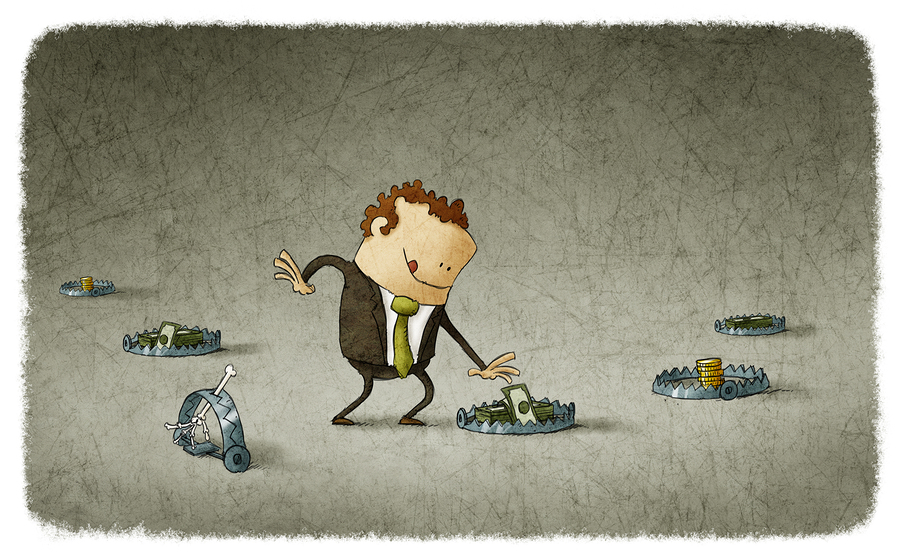Lesson No. 2: See Lesson No 1.
Although interest rates are ticking upwards, they have been at exceptionally low levels for several years, frustrating savers and retirees depending on income from investments like bonds and other fixed-income products. In early 2016, the highest-yielding money market accounts had an annual percentage yield of less than 1% — and most were far below that rate. One-year certificates of deposit yielded barely more than one-quarter of 1%. Five-year CD yields averaged about 0.90%.
You can understand, then, why investors are tempted to reach for a higher return from investments that promise to be "safe and secure," with "no risk," as the sales pitch often goes. But investors who move money from slower growing but safer investments into alternative investments need to understand the risks they are taking.
Despite the claims of some investment promoters, all investments carry a degree of risk. The level of risk usually is related to the return that investors can expect to receive. Investments with higher yields typically carry a higher risk to investors; the lower the risk, the lower the expected yield or return. No sales pitch can alter that fact.
Investors must depend in large part on their own due diligence. Consider the travails of investors who sunk money into the schemes outlined below — all of which are cases the State Securities Board prosecuted or investigated. The offerings of complex securities with unrealistic rates of return should serve as a warning to investors:
- A foreign exchange trading operation that promised investors a return of 200% on their principal, paid at a fixed rate over a number of weeks.
- A Corpus Christi investment adviser who sold an investment contract to some of his clients, who were supposed to receive between 2.5% and 5% of the firm’s monthly gross income for periods of between three and seven years.
- A binary trading options firm operated by two men who guaranteed their trading will double an investor’s account within the first 90 days.
- A wealth management firm promised investors that notes issued by European banks would pay short-term returns of between 10% and 50%.
- A company selling interests in oil and gas projects offered a “1,000% guarantee” of spectacular returns. An investment of $45,000, for instance, purportedly entitled an investor to a minimum return of $15,000 a month.
- An investment adviser sold securities based on a convoluted arbitrage strategy that offered investors a choice of a 10% annual return or 50% of trading profits.
 Yield-starved investors may be more easily enticed into fraudulent schemes likes the ones described above, and other types of scams discussed in the State Securities Board's current list of Top Investor Traps. Before making an investment, ask yourself:
Yield-starved investors may be more easily enticed into fraudulent schemes likes the ones described above, and other types of scams discussed in the State Securities Board's current list of Top Investor Traps. Before making an investment, ask yourself:
Are claims made for the investment realistic? Consider the risk inherent in an investment that promises to pay a safe and secure 10% a year when the annual yield of a five-year CD is slightly less than 1%.
Has the seller given you written information that fully explains the investment? You should request written information that fully explains the investment, such as a prospectus or offering circular. The documentation should contain enough clear and accurate information to allow you to evaluate and verify the particulars of the investment.
Are the individuals and firms registered in the State of Texas? If they are not, they may be operating illegally. For more information, contact the State Securities Board at 1-888-663-0009 or visit the Agency's website, where you can check the registrations and backgrounds of securities dealer and agents, and investment advisers.
Does it sound too good to be true? That old saw has stood the test of time. Take a step back and try to honestly assess the investment opportunity. Remember that in investing, high returns can only be achieved with a corresponding level of risk. Don't tempt the laws of finance.
